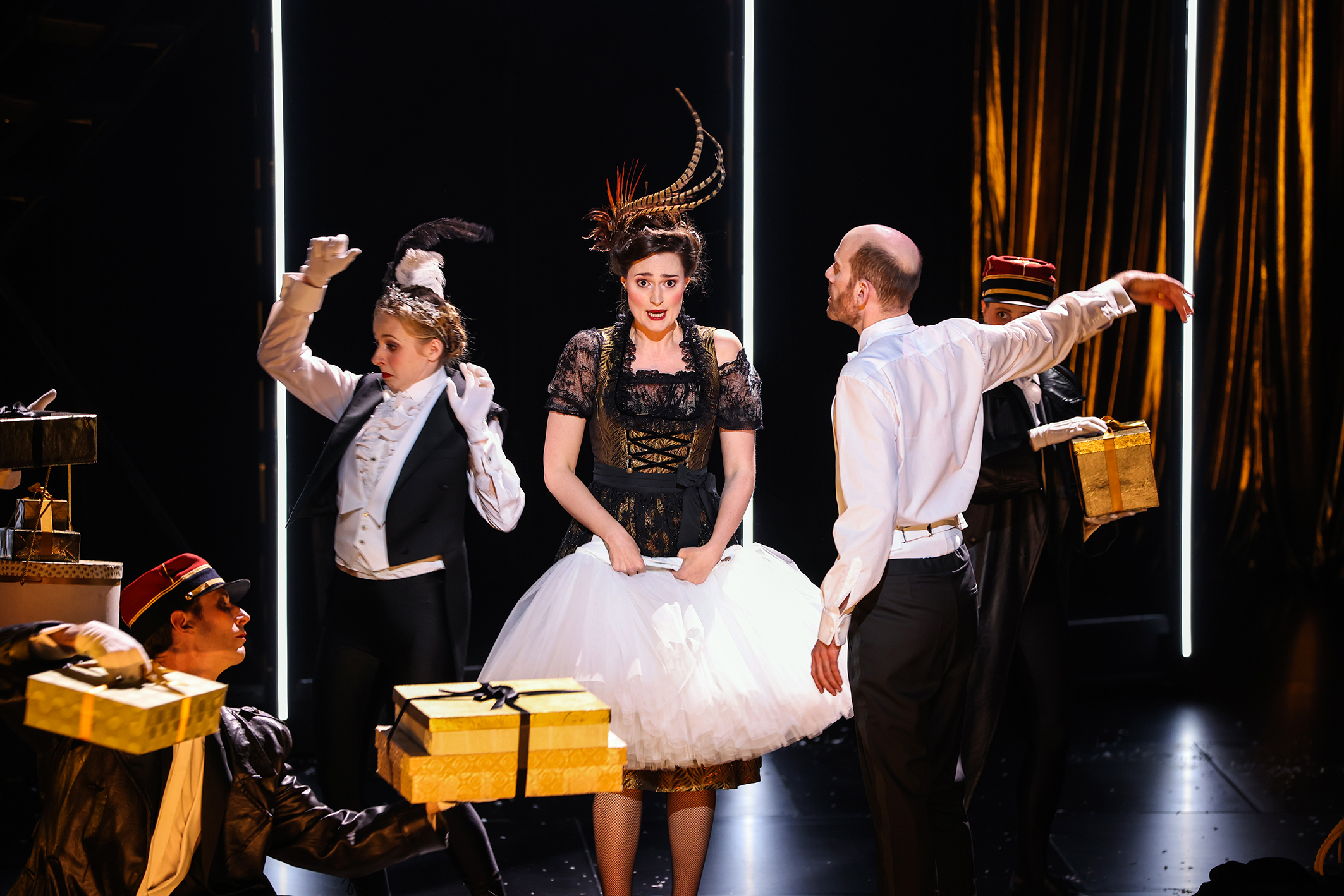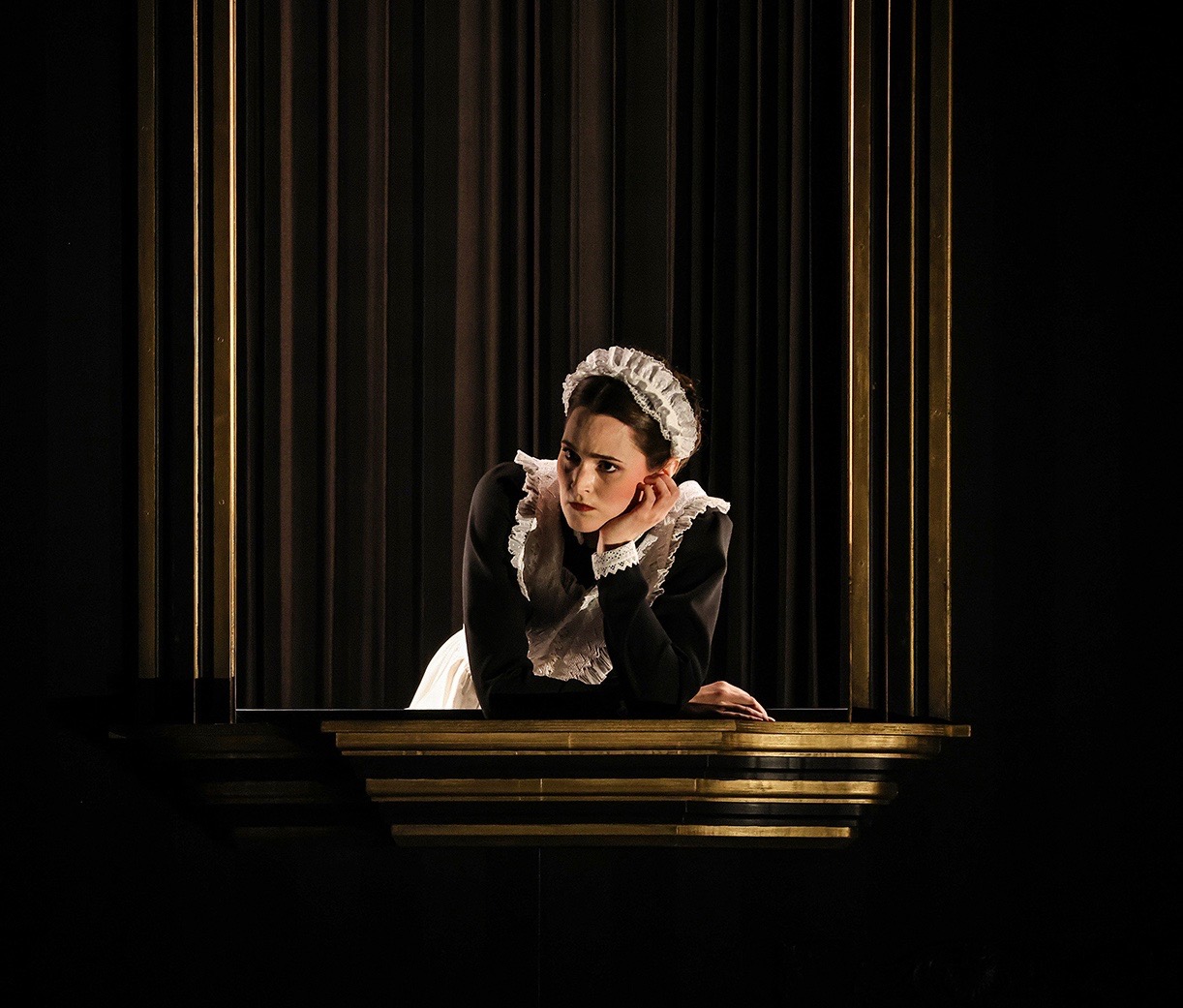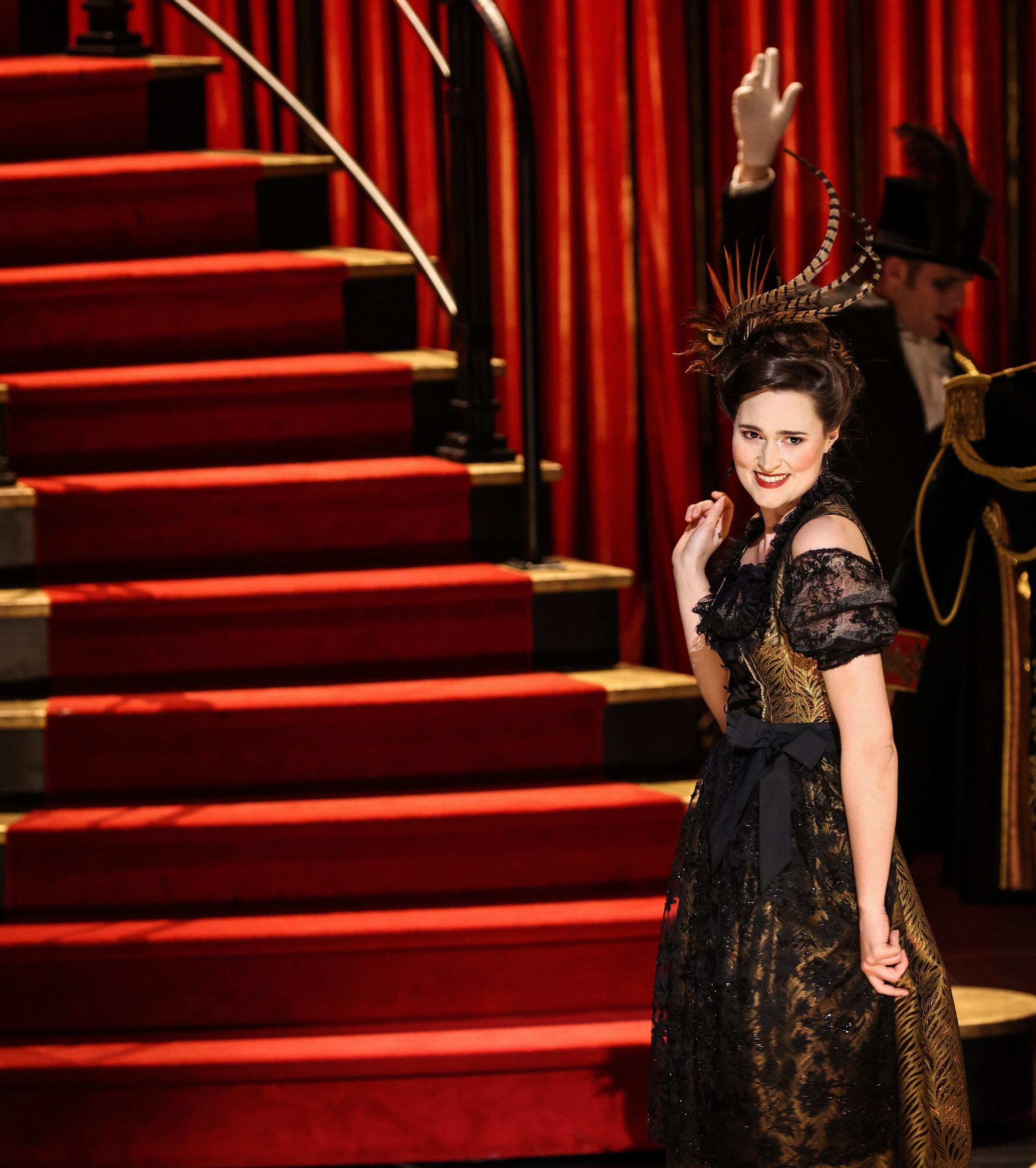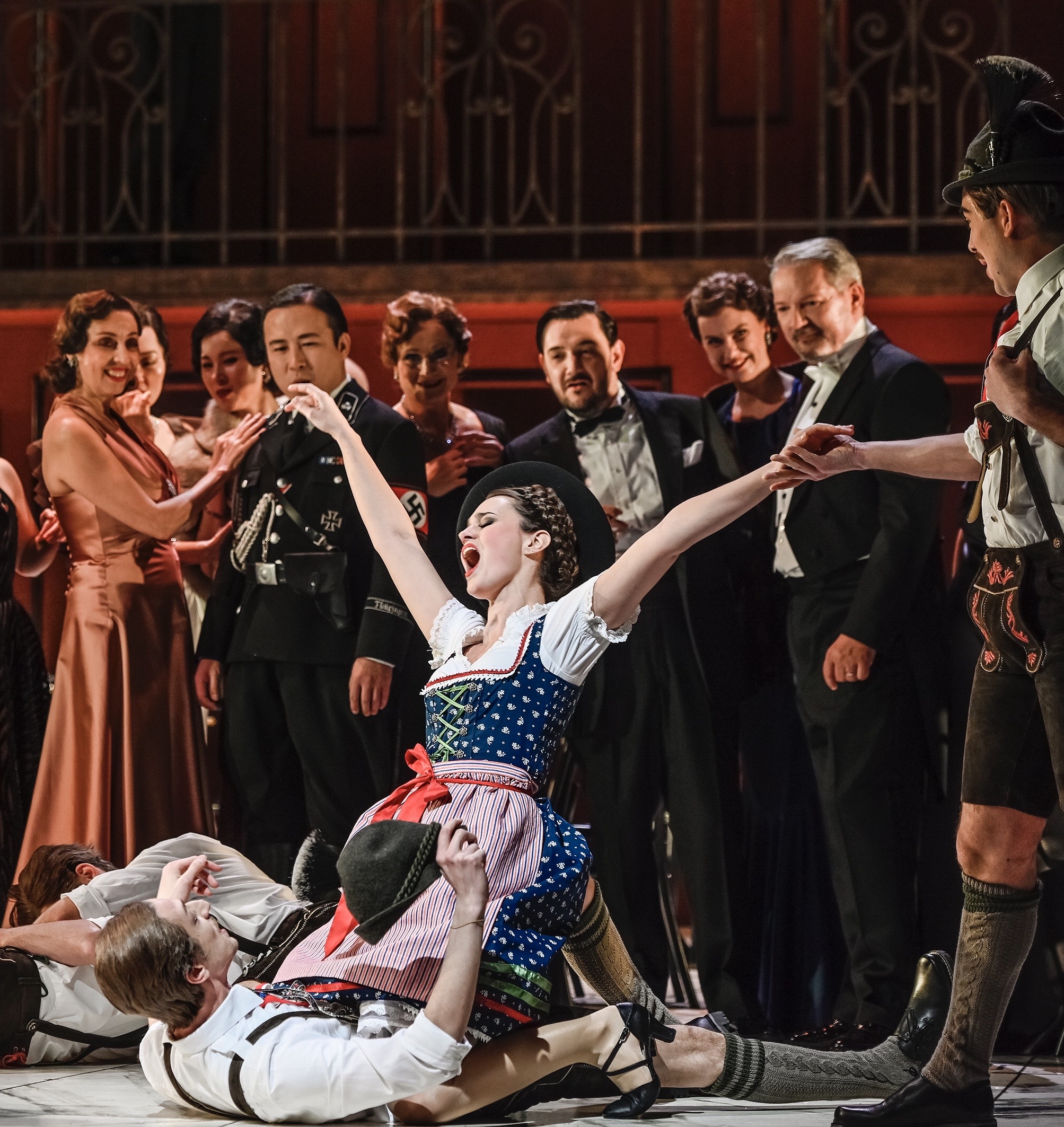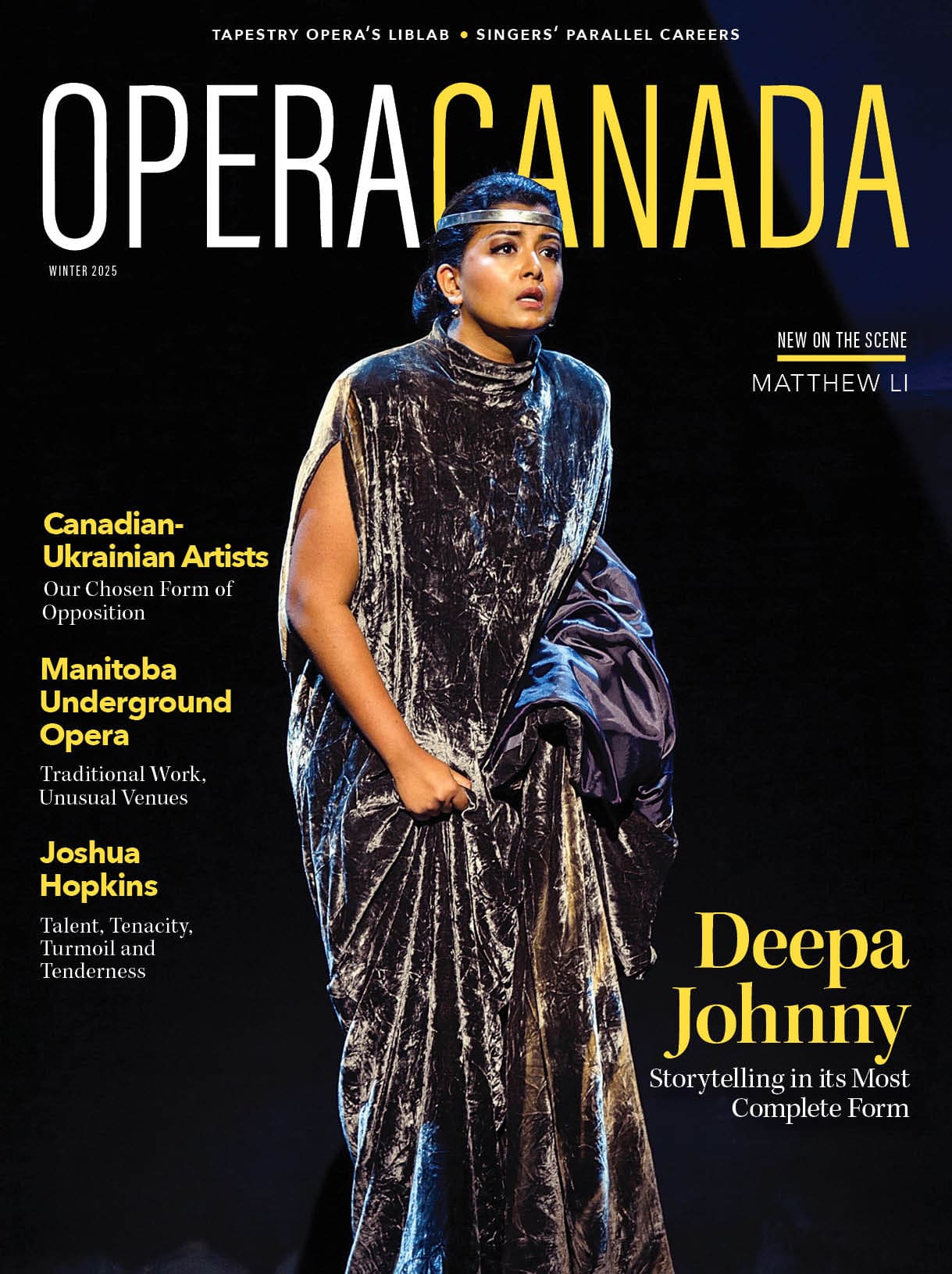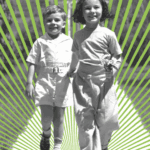Since March of last year, more and more opera houses have turned to digital means to continue to entertain and engage their audiences. Yet, while technology provides opera fans with a safe way to enjoy their favourite arias, its limitations have, of course, forced opera singers to adapt. This includes wearing masks, social distance restrictions, quarantines, cancellations, and a lack of audience to “emotionally engage with” during a performance.
Yet, despite these challenges, Montreal soprano Claire de Sévigné enjoyed her run as Adele in Opéra de Rennes’ production of Die Fledermaus, a new co-production between Opéra Grand Avignon, Nantes-Angers Opéra and Opéra de Toulon-Méditerranée. Even better, the singer said she felt safe throughout the entire production.
“This place was prepared,” says Sévigné who is currently in Trinité-sur-Mer, France. “[Opéra de Rennes] had us wear these special singing masks that came off our faces a bit, that had special fibers that we had to wear at every rehearsal period. So, for six weeks, we had to wear a mask every day, eight hours a day. They tested us every Monday for COVID, and then, when the orchestra [arrived] and we did take off our masks, we were doing PCR tests saliva tests.
“They were super on top of everything, and we ended up having three successful recording days with an entire cast of 12 people, full chorus, orchestra, a ballet core of six dancers, with no masks [during filming], and nobody got sick the entire time.”
Sévigné says she’s grateful for the company’s strict safety precautions in light of the uncertainty that COVID-19 has introduced. Like many other singers, the soprano has found traveling and working during the pandemic stressful thanks to worries around contracting COVID-19, flight and opera cancellations, and, of course, isolations.
“Singing is an art where your voice is connected to your emotions,” she says. “There were some rehearsals where I struggled to sing. Because in different places I felt like the sanitation rules weren’t strong enough. I felt I was stressed because flights were getting cancelled and it’s been hard not seeing my family. For the most part, I can’t complain too much compared to some of my other colleagues who’ve had a really rough time.
“But it’s been hard to be coached, and it’s been hard to do lessons. Doing them online is the worst. I would much rather do it in person. My first rehearsal in France—usually I’d have met a pianist and coach to help me with the role and I didn’t have that opportunity because of COVID-19. I couldn’t find a pianist who would meet with me so I was going in kind of cold and normally I would never do that in a million years. That to me is like being unprepared.”
As for any busy, professional singer, unpreparedness is not part of Sévigné’s lexicon. The soprano was recently nominated for a Classical Album of the Year JUNO award for her Naxos album of Vivaldi Cantatas, with Kevin Mallon and the Aradia Ensemble. She regularly appears with Grand Théâtre de Genève where her roles have included Blonde in Die Entführung aus dem Serail, Phani in Les Indes Galantes and L’Ange in Saint François d’Assise. When she was asked to sing Adele in Avignon, she knew she had to take a chance and go to France.
“I felt it was the perfect role for me,” says Sévigné. “It was the first opera I did on the mainstage for the Canadian Opera Company (COC) as a young training artist. I had been singing [Adele’s arias], and studying them for years, all throughout school. The role was perfect for me, it was just a no brainer, like, ‘wow, what a great contract to get’.
“And it’s a bigger role. It’s a lead role and I get to show more of my voice. Often the roles I do are shorter—they’re like a special part in the show, the showstopper. But with this role, there’s more of an art to it. There’s more of a character arc and there’s more of a story.”
Yet, despite the importance of this rare pandemic ‘live’ assignment, and despite the numerous pressures COVID-19 has introduced, Sévigné says the need for immediate perfection was not one of them.
“For a lot of the gigs I’ve been on now, the vibe is different in the room because of COVID-19, because it puts things into perspective,” says Sévigné. “I think people are saying, ‘this isn’t life or death, lets create art and music and do it in a positive way.’ It doesn’t have to be all or nothing.
“Still, I think its going to be easier when there’s more audience. And with Die Fledermaus, it’s so much better to perform for an audience because there’s dialogue…It’s not just singing, and it’s a comedy. Doing a comedy for no laughs is such a bummer.”
Until that day, however, audiences will have to be content with a digital Die Fledermaus—Opéra de Rennes’ online premiere is on June 9th. As of writing, the digital stream will only be available in France, but an airing for international audiences is being considered.

